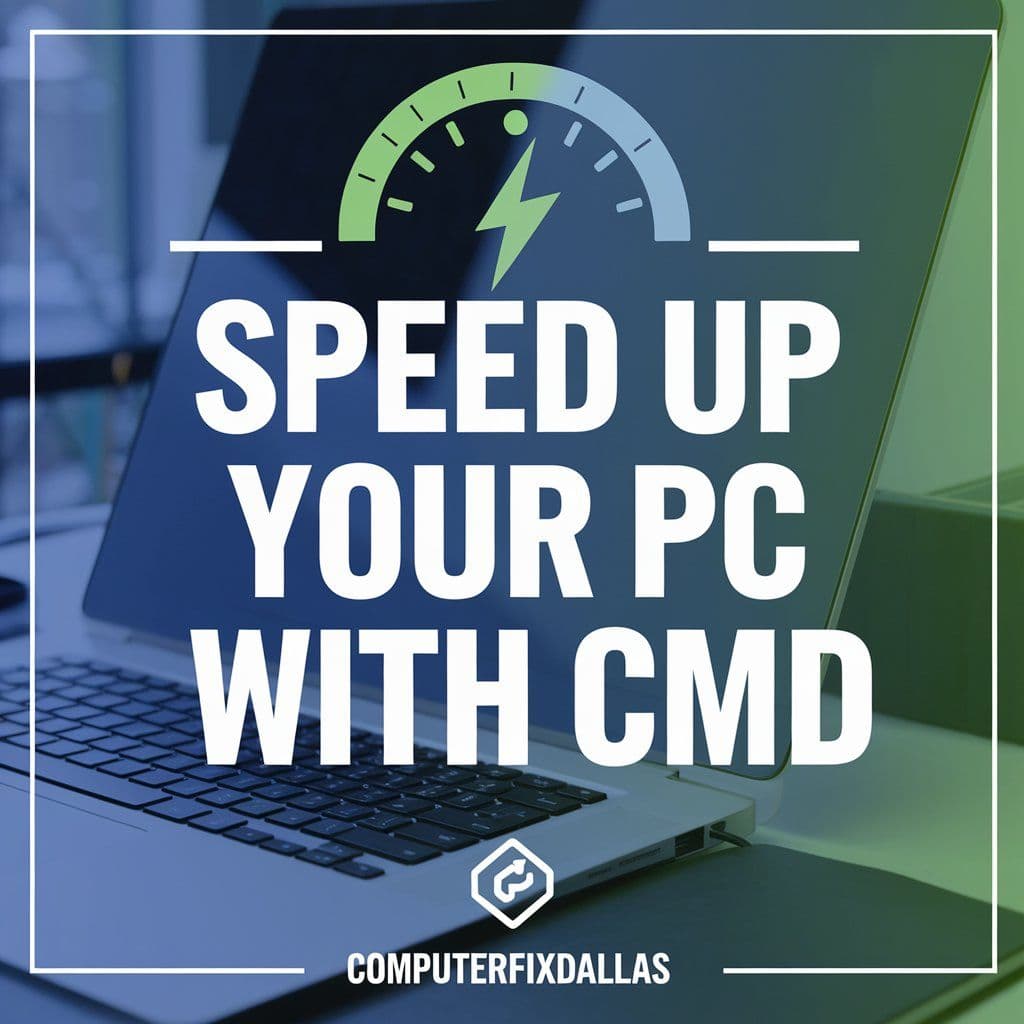11 NOV 2024
How to Speed Up Your Windows PC Using CMD

There's nothing more irritating than a slow PC, but very few people know that through Command Prompt-or CMD in short-Windows is able to troubleshoot and give life to an aloof system. In this blog, we are going through some easy commands via CMD that will help in cleaning up system files, resetting network settings, and fixing errors, thus improving your PC's performance. Let's begin with the steps!
1. Flush DNS Cache
DNS cache stores information related to recently visited websites. With time, it gets accumulated and has a tendency to decrease your browsing speed. You can clear this cache using the following command in the Command Prompt.
Command:

- Open Command Prompt as Administrator by searching "cmd" in the Start menu, right-clicking, and choosing "Run as Administrator."
- Type in the above command and press Enter.
2. Check and Repair System Files
Damaged system files can cause computers to lag or operate strangely. Within your computer is a utility known as the System File Checker (sfc); this scans your computer for corrupted files and can repair them.
Command:

Here's how to run it:
- Open up CMD as an Administrator.
- Type the command and press Enter.
Wait for the scan to complete-it can take some minutes. In case it finds some problems, by default, it tries to repair those automatically.
3. Check Disk for Errors
Errors in the hard drive can lead to slow performance. The Check Disk utility, chkdsk, scans the drive for bad sectors and corrects them if required.
Command:

How it works:
- Hit the Windows Key + X and open CMD as Administrator.
- Replace C: with the letter of the drive you want to check.
Hit Enter. The system may prompt for a schedule scan at the next restart—just type "Y" and hit Enter to confirm.
4. Reset TCP/IP Stack
Resetting the TCP/IP stack will repair many thorny but sluggish or erratic internet connections. Primarily, this resets the defaults within the network configuration that often has an impact on improving the speed and connectivity of the internet.
Command:

To reset the network stack, open an elevated CMD and then run the command below. After that, hit Enter. Finally, restart your computer.
5. Clean Up Temporary Files
Windows and applications use temporary files to speed up operations. Over time, however, they accumulate and waste space that you need. You can delete temporary files using Command Prompt.
Command:

To clear temporary files:
- Open CMD as Administrator.
- Type the command and press Enter. This will clear unnecessary temporary files that Windows stores.
6. Run Disk Cleanup to Improve System Performance
Though there is a built-in utility in Windows for performing Disk Cleanup, you can do it through CMD if you find it quicker that way. The cleanmgr command opens the Disk Cleanup tool directly.
Command:

Here's how:
- Open CMD as Administrator.
- Type the command and press Enter.
Now, select the drive you want to clean, and the Disk Cleanup will estimate how much space you are able to free.
Conclusion
With these simple CMD commands, you would significantly improve your Windows computer performance without installing additional software. Clear up the unnecessary files, repair system errors, reset network configurations-the PC will surely run faster and smoother.
Also, for even more boosts in performance, make it a habit to restart your computer frequently, keep your software updated regularly, and uninstall the programs that you don't need anymore.
Need professional help to fix your PC? Contact ComputerFixDallas for fast and reliable computer repair services!
Newsletter
Get Notified By Our Newsletter
Explore More Blogs
Explore Insights and Repair Tips Here
